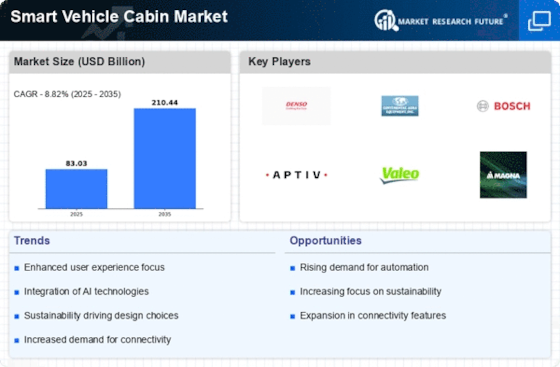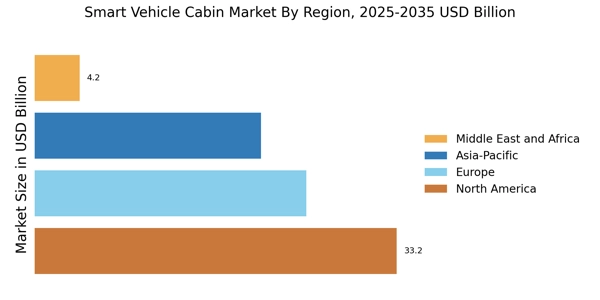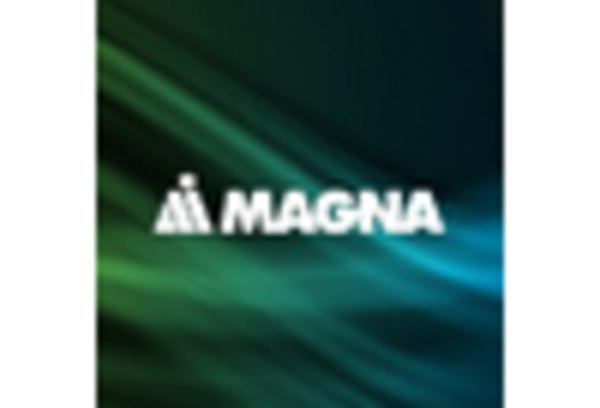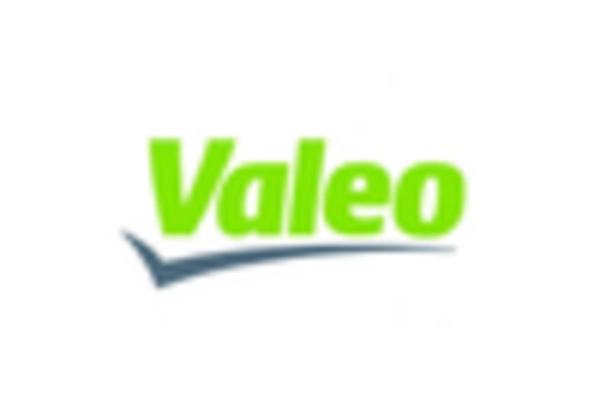Growing Emphasis on Sustainability
The Smart Vehicle Cabin Market is witnessing a growing emphasis on sustainability, driven by both consumer preferences and regulatory pressures. Automakers are increasingly adopting eco-friendly materials and energy-efficient technologies in vehicle cabins. This shift not only aligns with global sustainability goals but also appeals to environmentally conscious consumers. Data indicates that the market for sustainable automotive materials is on the rise, suggesting a potential increase in demand for smart cabins that prioritize sustainability. As manufacturers innovate to reduce their carbon footprint, the Smart Vehicle Cabin Market is likely to evolve in response to these changing dynamics.
Integration of Advanced Safety Features
The Smart Vehicle Cabin Market is experiencing a notable shift towards the integration of advanced safety features. This trend is driven by increasing consumer demand for enhanced safety and security in vehicles. Technologies such as collision avoidance systems, adaptive cruise control, and lane-keeping assistance are becoming standard in modern vehicles. According to recent data, the market for advanced driver-assistance systems (ADAS) is projected to grow significantly, indicating a strong correlation with the Smart Vehicle Cabin Market. As manufacturers prioritize safety, the incorporation of these features into vehicle cabins is likely to enhance consumer confidence and drive sales.
Rise of Autonomous Driving Technologies
The Smart Vehicle Cabin Market is poised for transformation due to the rise of autonomous driving technologies. As automakers invest heavily in research and development, the demand for smart cabins that can support autonomous functionalities is increasing. Features such as automated climate control, voice-activated systems, and real-time data analytics are becoming essential components of smart vehicle cabins. Market analysis suggests that the autonomous vehicle segment is expected to witness substantial growth, which will, in turn, bolster the Smart Vehicle Cabin Market. This evolution may redefine user experiences and expectations in vehicle design.
Consumer Demand for Enhanced Connectivity
The Smart Vehicle Cabin Market is significantly influenced by consumer demand for enhanced connectivity. As technology advances, consumers increasingly expect seamless integration of their devices with vehicle systems. Features such as smartphone connectivity, in-car Wi-Fi, and advanced infotainment systems are becoming critical selling points. Recent statistics indicate that the connected car market is expanding rapidly, with projections suggesting a substantial increase in connected vehicle sales. This trend underscores the importance of connectivity in the Smart Vehicle Cabin Market, as manufacturers strive to meet consumer expectations and enhance the overall driving experience.
Technological Advancements in User Experience
The Smart Vehicle Cabin Market is being propelled by technological advancements aimed at enhancing user experience. Innovations such as augmented reality displays, gesture control, and personalized ambient lighting are redefining how consumers interact with their vehicles. These technologies not only improve functionality but also create a more engaging and enjoyable driving environment. Market trends indicate that investments in user experience technologies are increasing, suggesting a strong future for the Smart Vehicle Cabin Market. As competition intensifies, manufacturers are likely to focus on creating unique and immersive experiences to attract consumers.
.png)

















